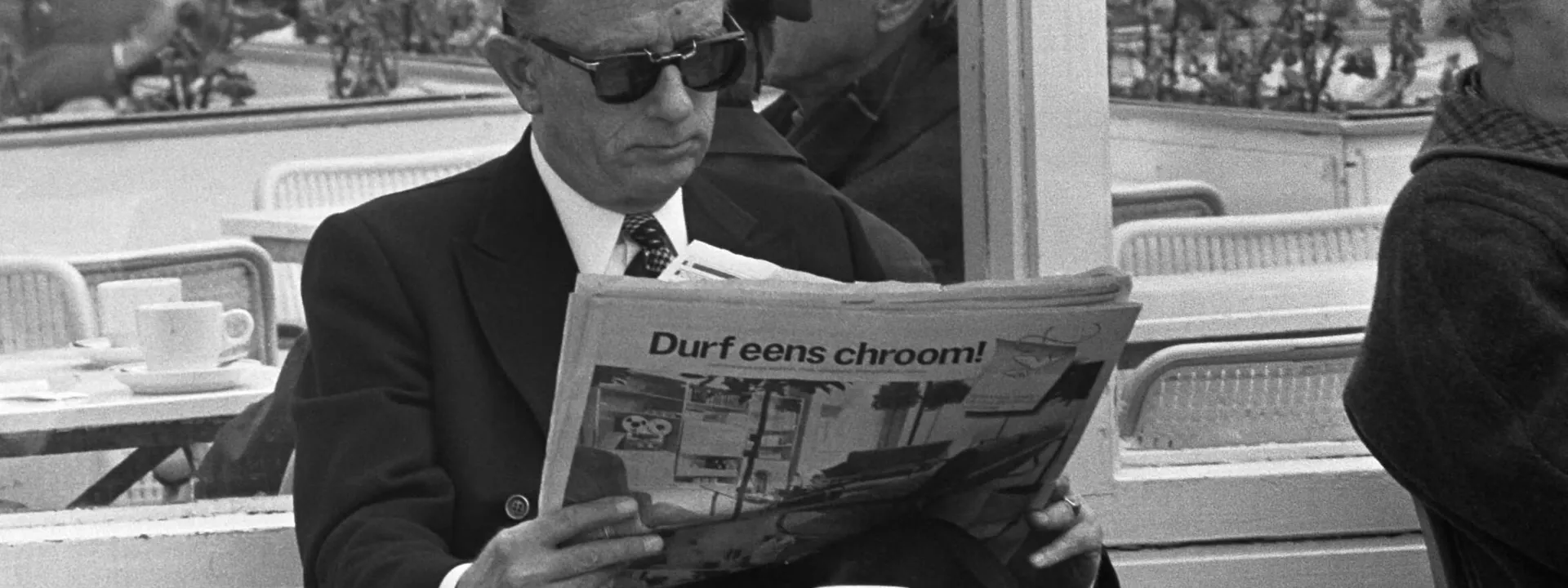For a few years now, I have stopped following the news. I have unlearned the habit of obsessively checking news websites. As a result, I am not up to date with the latest developments, but I also no longer worry about things over which I have no direct control.
The news is bad for you because:
1. You only see the negative extremes
"If it bleeds, it leads." If it's bloody, it must be on the front page. This quote is attributed to newspaper magnate William Randolph Hearst. What it actually means is that when news is bloody, it gets placed on the front page because it sells the most newspapers. We don't want to read stories about people helping each other. We want to be shocked. Therefore, it's not surprising that Facebook's algorithm continues to serve us negative news stories because they generate more engagement from us as users.
Being constantly bombarded with stories that make you angry distorts your worldview. This is also known as the "mean world syndrome":
"Gerbner called this the mean world syndrome: If you grow up in a home where there's more than, say, three hours of television per day, for all practical purposes, you live in a meaner world—and act accordingly—than your next-door neighbor who lives in the same place but watches less television."
Eli Parser - The Filter Bubble
The world around you is not getting worse, but you feel that it is. If you read Steven Pinker's book "The Better Angels of Our Nature", you will see that almost all statistics indicate a better world:
- There are fewer murders
- There is less pollution
- There is less child mortality
So why does it feel like society is spiraling downward?
2. The News is not objective
We pretend that the news is only a matter of facts, but it is subjective. Someone makes a choice to publish or not publish news about a certain event. Every day, in an editorial room, a subjective decision is made about which news stories are published and in what manner. And that is news that attracts more readers, listeners, or viewers. Because more audience means more advertising revenue.
Don't think that you become smarter by consuming the news. The so-called factual knowledge you build up does not provide a complete picture of reality. You are not aware of what is happening in the world. You are only aware of the events that sell more advertisements.
Take, for example, legislative proposals. An important part of a democracy that should receive significant media attention. However, that is not the case, as Jesse Frederik reveals in his book "Zo hadden we het niet bedoeld" (Dutch book). He writes:
"Most legislative proposals receive no media attention at all. Only one in five laws is covered in a national newspaper article, and only one in ten laws gets more than five articles in the newspaper."
Apparently, legislative proposals are simply not a sexy topic for newspapers. However, they have a significant impact on how you are allowed to live your life in a country.
3. You are in a filter bubble
The filter bubble, as described by Eli Parser in his book "Filter Bubble" ensures that you see news articles tailored to your personal preferences. Through algorithms, sites like LinkedIn and YouTube can determine what kind of articles or videos you enjoy reading or watching.
If you watch a video about cars on YouTube, you will be recommended other car-related videos. There's a good chance that you'll find something interesting, so you watch another car video. Now, YouTube thinks you love car videos the most, so you're only served car videos. And voilà, you're in a filter bubble. Parser provides a similar example in his book:
"If Netflix shows me a romantic comedy and I like it, it'll show me another one and begin to think of me as a romantic-comedy lover. But if it wants to get a good picture of who I really am, it should be constantly testing the hypothesis by showing me Blade Runner in an attempt to prove it wrong. Otherwise, I end up caught in a local maximum populated by Hugh Grant and Julia Roberts."
When this is applied to the news, it can be dangerous. You will only see news articles that confirm your viewpoint. You are never challenged to look at things from the other side and end up blindly following the same direction.
But you still stay informed about major events
There are certain topics that you will inevitably not miss. Think of COVID or the war in Ukraine. You hear about them from family members or colleagues at the coffee machine. You usually get a general overview of the situation but don't need to worry about the details.
Take climate change, for example. Despite not following the news, I know that the world we live in is getting warmer due to changing climates. Not reading news about it doesn't mean I'm turning a blind eye. I know what I need to do to contribute to a greener world, and I do it. Being bombarded daily with apocalyptic news articles doesn't change my behavior. However, my stress level does skyrocket every time I read about the impending end of the world.
Conclusion
By following the news, the world around you becomes scarier. You see news that is focused on both advertising revenue and your personal preferences.
Despite not following the news daily, you are still aware of major events but are less concerned about the fleeting trends of the day.
So, stop following the news!
Do you follow the news or not? Why or why not? Let me know by leaving a comment below.

